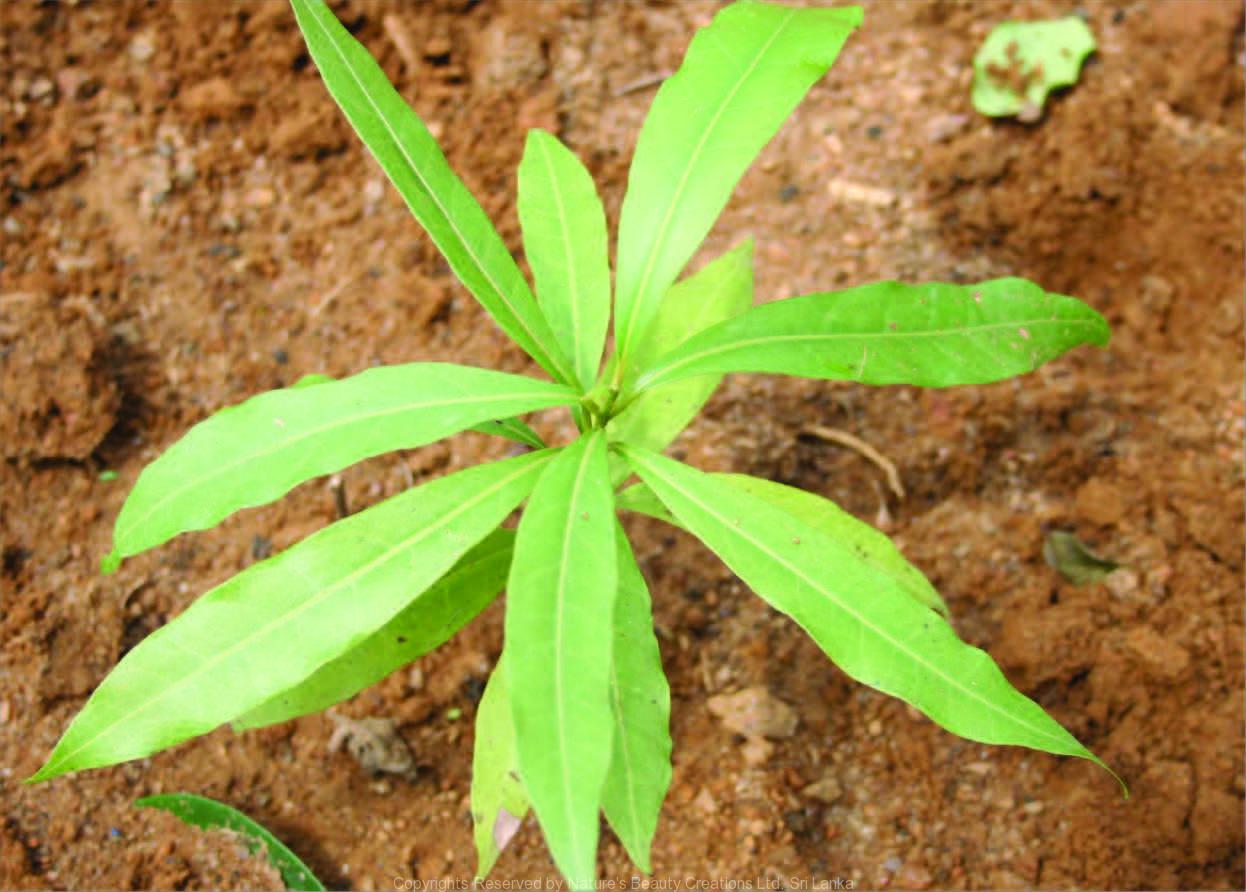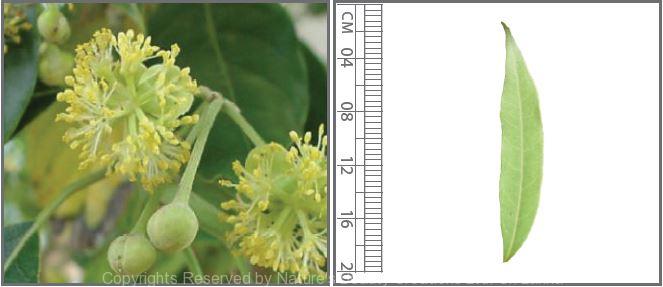

Traditional Knowledge
Useful plant parts :
Bark, leaf and oil
Uses in traditional medicine :
- Pounded bark and fresh leaves are applied on broken bones to promote healing
- Thick decoction of leaves is applied on skin boils
- Bark acts as a demulcent, mild astringent for diarrhoea and dysentery
- Oils are used for rheumatism
- Whole plant is aphrodisiac
Scientific Research
Chemical constituents:
Water soluble arabinoxylan from bark; aporphine alkaloids: litseglutine A, B, boldine, laurolitsine from leaves; terpenes: phytol, caryophyllene, thujopsene, β-myrcene, α-cubebene from leaf and fruit oil; flavonoid glycoside: glutin, lactones: butenolide and its derivatives, litsealactone C, D and G, benzoic acid derivative: eusmoside C from plant
Bioactivity :
Methanol extract of bark: antibacterial
Clinical:
References : Agrawal, N. et al., (2013), Butanolides from methanolic extract of Litsea glutinosa, Chem Biodivers, 10(3), 394-400. Chowdhury, J. U. et al., (2008), Aromatic plants of Bangladesh : essential oils of leaves and fruits of Litsea glutinosa (lour.) C.B. Robinson, Bangladesh Journal of Botany, 37(1), 81-83. Herath, H. M. T. B. et al., (1990), Structural studies of an arabinoxylan isolated from Litsea glutinosa (Lauraceae), Carbohydrate research, 198(2), 343-351. Mandal, S. C. et al., (2000), Antibacterial activity of Litsea glutinosa Bark, Fitoterapia, 71, 439-441. Wang, Y. S. et al., (2010), A new 2′-oxygenated flavone glycoside from Litsea glutinosa (Lour.) C. B. Rob, Biosci Biotechnol Biochem, 74(3), 652-4. Yang, J. U. et al., (2006), Two New Aporphine Alkaloids from Litsea glutinosa, Journal of Essential Oil Research, 8(5), 553-556. Yang, J. H. et al., (2005), Two New Aporphine Alkaloids from Litsea glutinosa, Helvetica Chimica Acta, 88(9), 2523-2526.
Copyrights Reserved By
Natures Beauty Creations




